
Deputy PM, FM Bui Thanh Son and Australian Minister Don Farrell hold a meeting in Adelaide
Latest
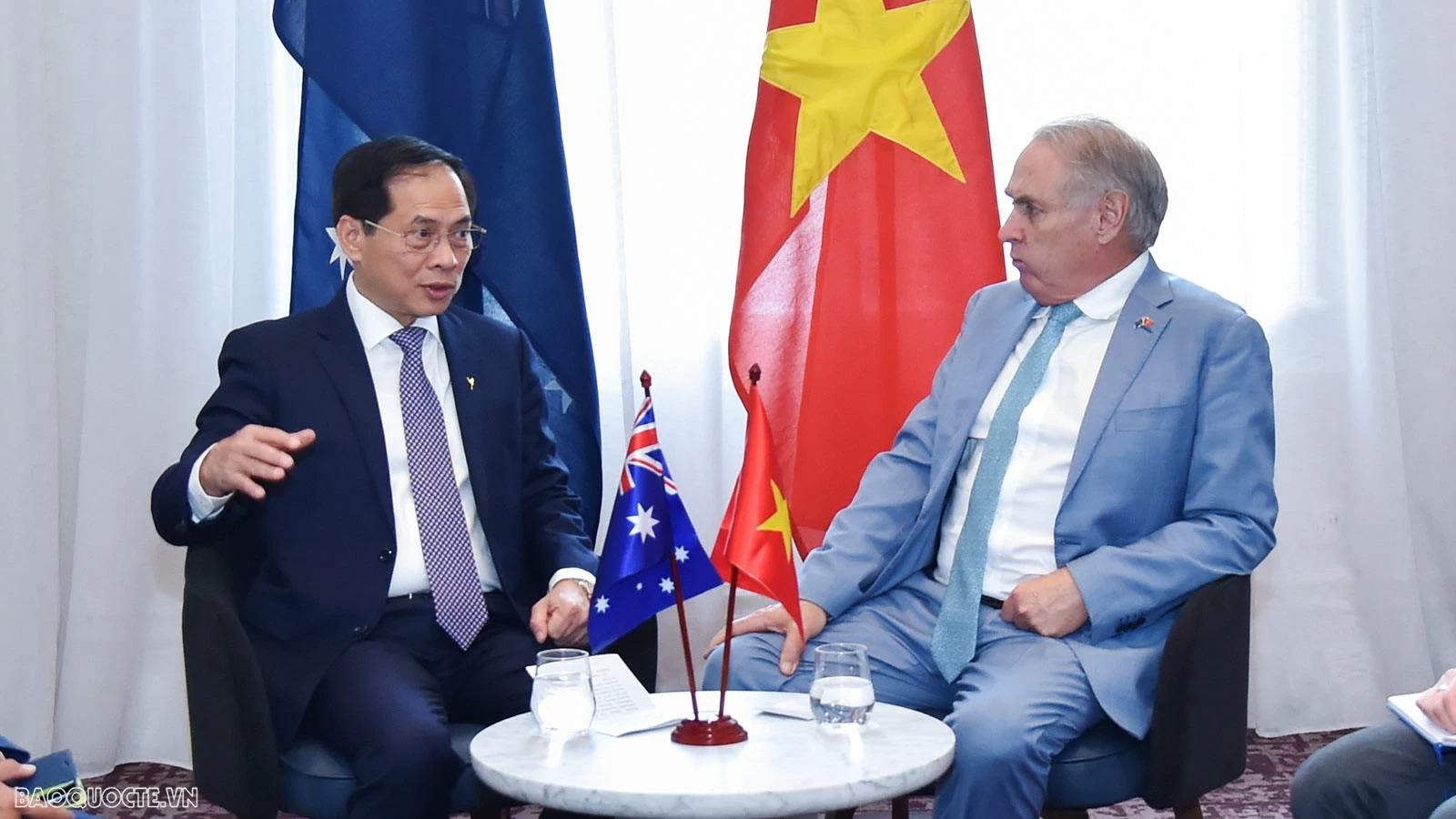 |
| On October 17, Deputy Prime Minister and Minister of Foreign Affairs Bui Thanh Son held a working session with Australian Minister for Trade and Tourism Don Farrell in Adelaide city> (Photo: Tuan Anh) |
Deputy Prime Minister Son lauded Australia’s efforts to strengthen and diversify its economic relations with partners in Southeast Asia, and with Vietnam in particular, by implementing various practical initiatives and projects under Australia’s Southeast Asia Economic Strategy to 2040.
He urged Minister Farrell to continue supporting Australian businesses to invest in Vietnam, especially in areas where Australia has strengths and Vietnam has potential.
Deputy Prime Minister Son also suggested the two sides promote people-to-people exchanges and open more direct flights between the two countries.
For his part, Minister Farrell stated that there is a large room and potential for Vietnam and his country to expand their economic, trade, and investment relations. He emphasised the need for the two sides to effectively implement the Joint Statement on upgrading their relationship to a comprehensive strategic partnership, especially the "economic connectivity" pillar, with an aim to become each other’s top 10 trade partners, and doubling two-way investment capital as set in the Enhanced Economic Engagement Strategy (EEES).
The Australian business community is increasingly interested in the Vietnamese market, he said, adding that the Vietnamese community in Australia has been making significant contributions to the socio-economic development of the Oceanian country, and serving as an important bridge for bilateral cooperation.
According to Minister Farrell, Australia will continue supporting Vietnam in terms of high-quality infrastructure, digital infrastructure, climate-resilient infrastructure, agriculture, and minerals; and developing small- and medium-sized enterprises (SMEs) and human resources. It will also strengthen collaboration with Vietnam at multilateral trade mechanisms such as the Comprehensive and Progressive Agreement for Trans-Pacific Partnership (CPTPP) and the ASEAN-Australia-New Zealand Free Trade Agreement (AANZFTA).
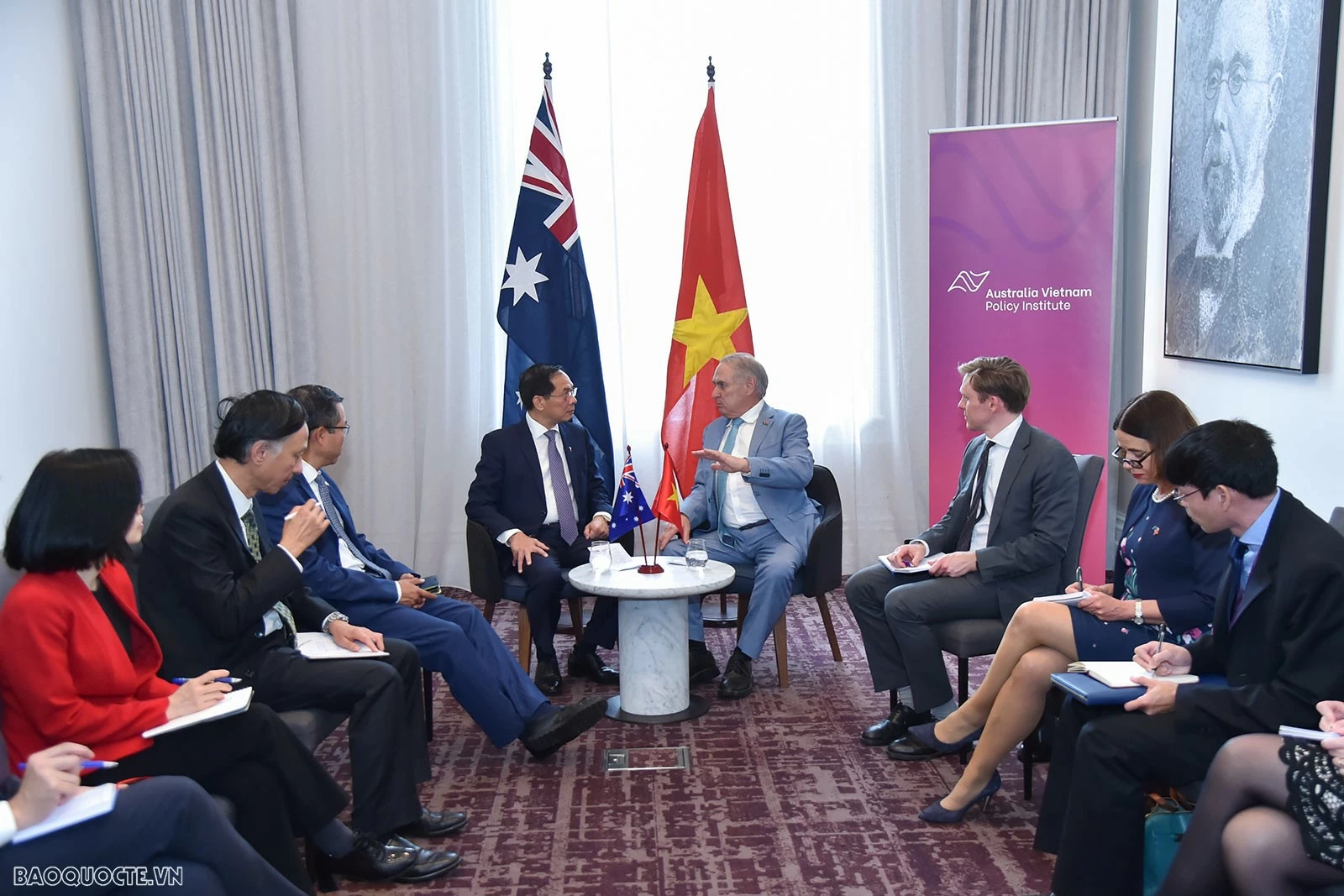 |
| Cộng đồng doanh nghiệp Australia ngày càng quan tâm đến thị trường Việt Nam |
After the meeting with the Australian official, Deputy Prime Minister Son attended and delivered a speech at a workshop hosted by the Australia - Vietnam Policy Institute (AVPI).
The Vietnamese Deputy Prime Minister highlighted the AVPI's role in advising the leadership of the two sides to identify a "new mindset, new vision, and new actions" for the Vietnam-Australia relations in the future, saying that the institute’s activities have contributed to promoting cooperation and exchanges, and enhancing mutual understanding between the two countries.
Deputy Prime Minister Son affirmed that the Vietnam-Australia relations are at their most beautiful stage, offering inspiring stories and standing at a new starting point, which opens up vast opportunities for stronger cooperation.
He expressed his hope that the two countries will continue to open their markets to maximise the benefits of the cooperation frameworks and new-generation FTAs that both are members.
Deputy Prime Minister Son urged Australian businesses to continue investing in Vietnam in a quality and sustainable manner, particularly in green economy, digital economy, circular economy, innovation, semiconductor manufacturing, new energy, essential minerals, green finance, biotechnology, health care, high-tech agriculture, and in training high-quality human resources.
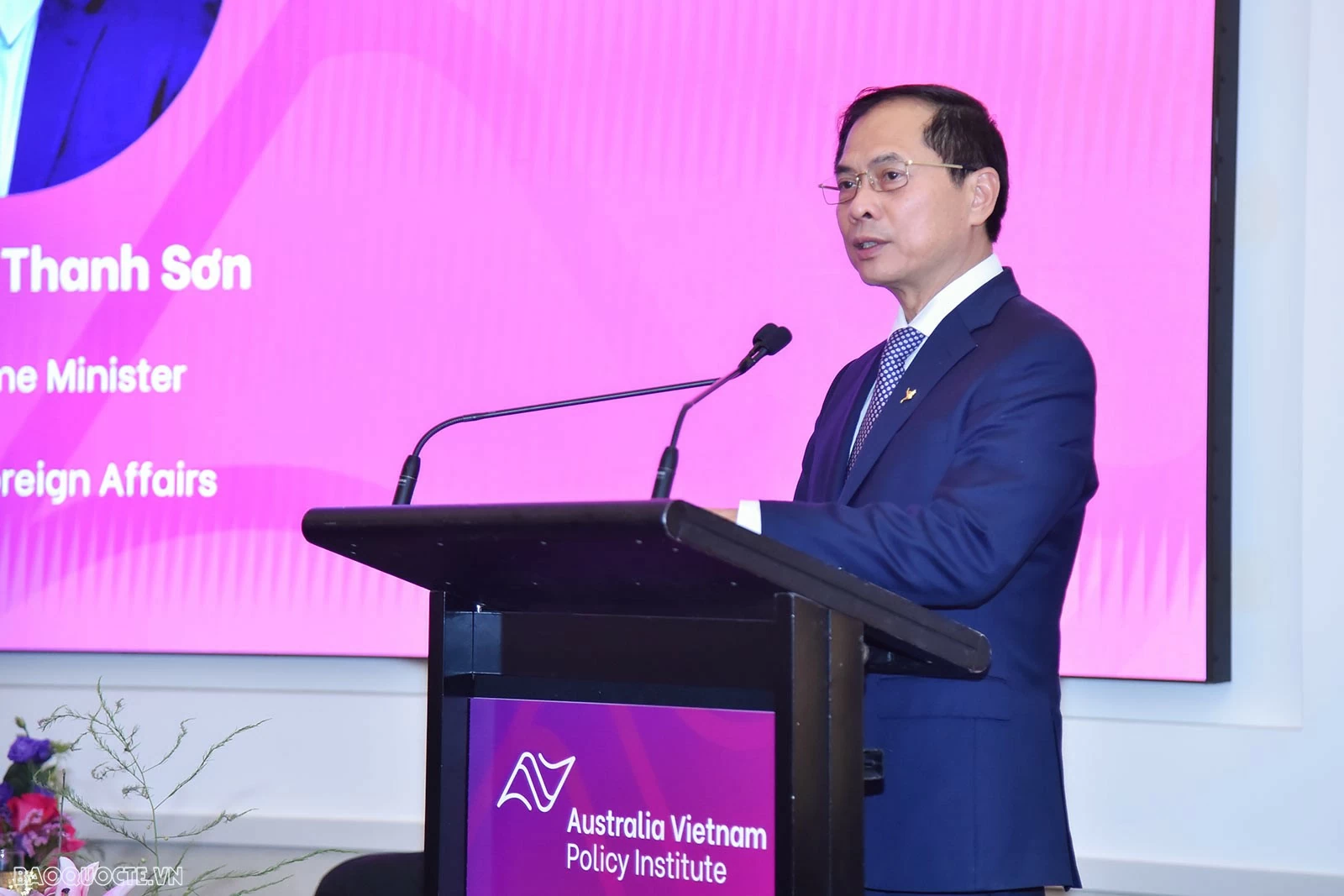 |
| Deputy Prime Minister Son attended and delivered a speech at a workshop hosted by the Australia - Vietnam Policy Institute (AVPI. (Photo: Tuan Anh) |
Speaking at the event, Minister Farrell emphasised that Australia considers the ASEAN an important economic partner of Australia, and Vietnam is one of Australia's priority focuses in the region.
Australia established a 2 billion AUD (1.3 billion USD) fund to boost two-way trade and investment with Southeast Asia, he said, adding that it will continue to support the clean energy transition and infrastructure development in the region.
Meanwhile, Vietnamese Minister of Planning and Investment Nguyen Chi Dung affirmed that expanding cooperation with Australia is not only a choice but also an important strategy in Vietnam's development process. The two countries have many complementary advantages, and their cooperation can create a solid foundation for sustainable growth in the future.
To further promote the two countries’ Comprehensive strategic partnership and fully tap the potential for cooperation, the minister proposed key orientations in the Vietnam-Australia relationship, including cooperation in clean and sustainable energy, technology and innovation, high-tech agriculture, education, and development cooperation.
Earlier on the same day, Deputy Prime Minister and Foreign Minister Bui Thanh Son visited the University of Adelaide in South Australia, one of the eight most prestigious universities in Australia.
At the meeting with the University's managers, lecturers and outstanding Vietnamese students, Son emphasised that education has served as a bridge between Vietnam and Australia since the establishment of diplomatic relations. Now, it becomes one of the most important areas within the framework of the Comprehensive strategic partnership between the two countries.
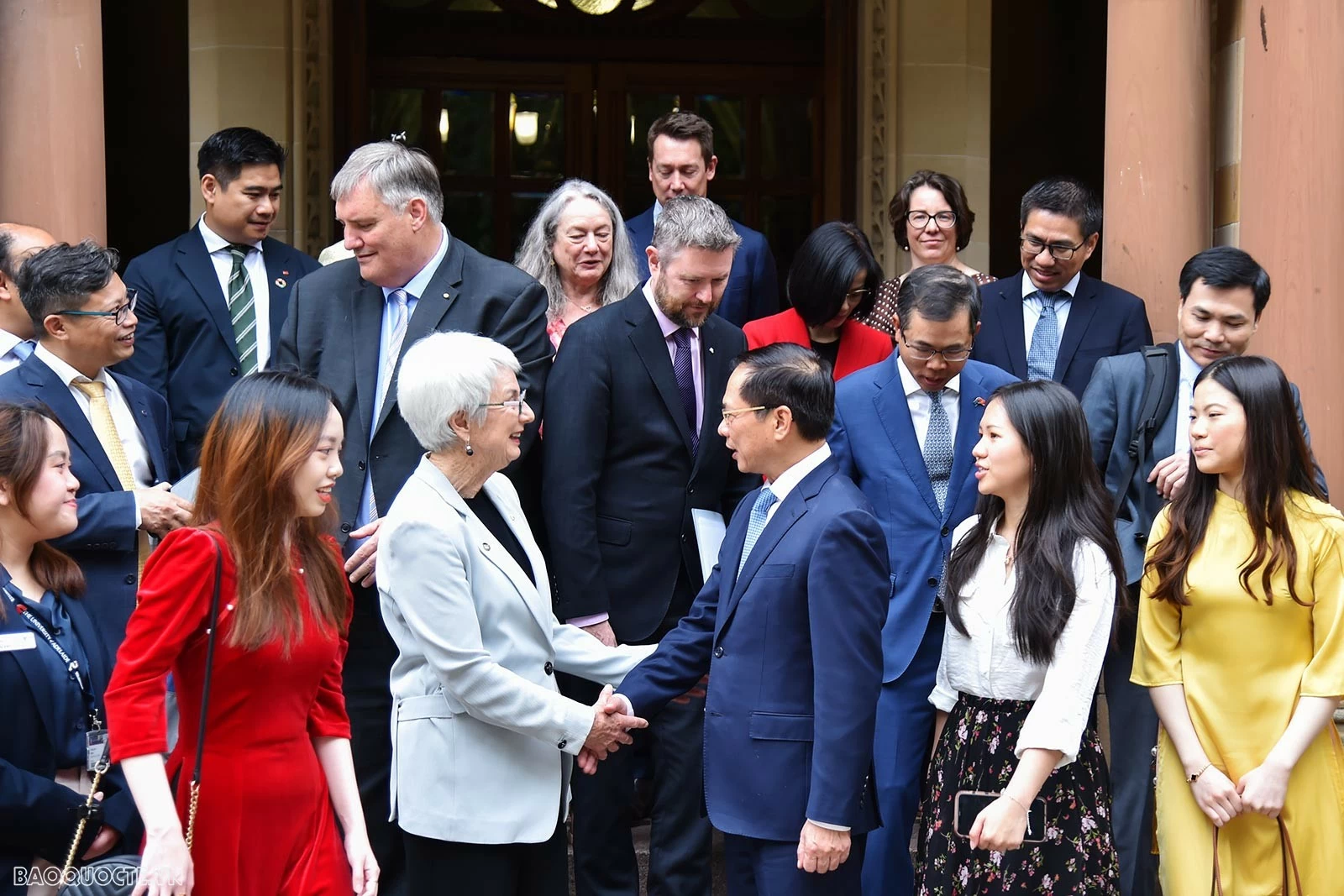 |
| Deputy Prime Minister and Foreign Minister Bui Thanh Son visited the University of Adelaide in South Australia. (Photo: Tuan Anh) |
He said that the joint statement on upgrading the two countries’ relations to the Comprehensive strategic partnership in March 2024 has opened up many opportunities for them to strengthen cooperation, especially in the field of education.
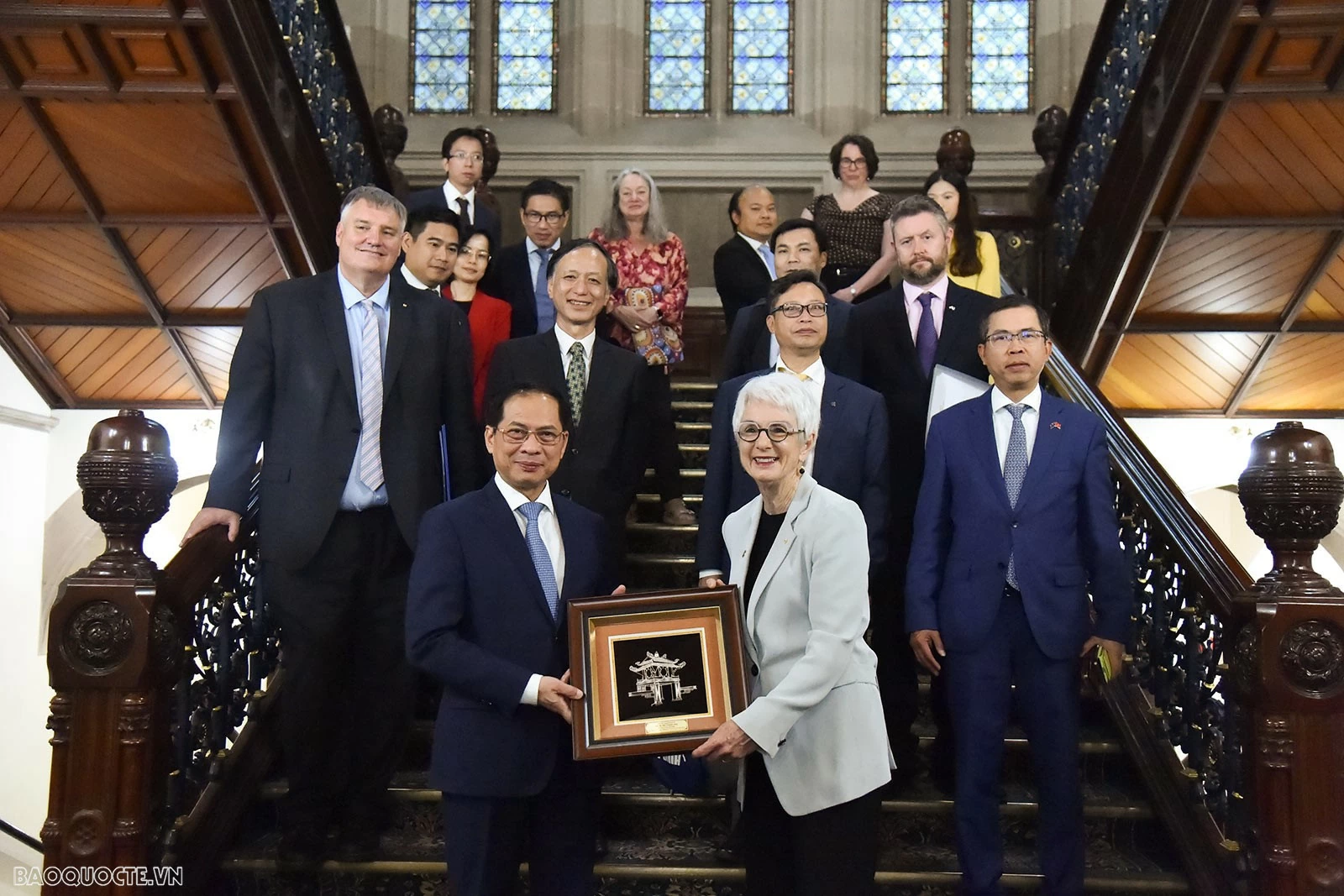 |
| Deputy Prime Minister and Foreign Minister Bui Thanh Son visited the University of Adelaide in South Australia. (Photo: Tuan Anh) |
Deputy Prime Minister Son hoped that in the coming time, the University of Adelaide will consider increasing the number of scholarships for Vietnamese students, thereby supporting human resource training and capacity building for Vietnamese students; expanding partnerships and establishing links with Vietnamese partners, including public and private universities, not only in education and training programmes, but also in research and innovation, especially in areas where the school has strengths such as science, programming, health and medicine, environment, and climate change response.
He also hoped that the University will consider establishing Vietnamese study centres and its branches or research institutes in Vietnam to promote bilateral cooperation in science and technology, especially in emerging technologies such as artificial intelligence (AI), semiconductors, sustainable and green energy.













